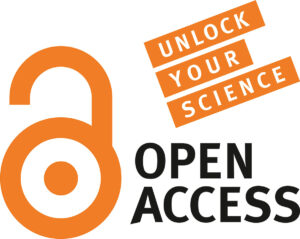
What is Open Access?
Open Access refers to free access to scientific publications and research data on the Internet. This means that interested parties can read, download, copy, distribute, print, search in, refer to, and otherwise use the full texts in every conceivable legal way.
Advantages of Open Access
-
- high visibility
- larger readership
- increased citation rate
- faster dissemination, networking and circulation of knowledge
- better reproducibility of results
The University of Salzburg is committed to the principles of Open Access publishing and supports its employees financially and by providing the appropriate infrastructure (Publication server ePLUS) for publishing and disseminating scientific work open access.
Directory of Open Access Journals
The University Library of Salzburg supports the Directory of Open Access Journals through a sustaining membership starting in 2022. This funding was enabled, inter alia, by start-up financing within the framework of the Austria-wide project Austrian Transition to Open Access. The DOAJ is the largest directory of peer-reviewed scholarly Open Access journals and thus an important research source for both scientists and funding agencies. By funding of such infrastructure projects, the Salzburg University Library contributes to ensuring the long-term quality assurance of Open Access journals.
Budapest Declaration
The Declaration of Principles of the Budapest Open Access Initiative of 14 February 2002 is considered the starting point of the Open Access movement. The initiative is an international, interdisciplinary collaboration of scientists with the aim of making research results freely available to the public. The University of Salzburg follows the definition of Open Access publishing that is still valid today, as it was developed in the declaration. Further information at: Budapest Declaration (2002)
Berlin Declaration
To reaffirm its support for Open Access publishing, the University of Salzburg signed the Berlin Declaration on Open Access to Knowledge in the Sciences and Humanities on March 11, 2014. The Berlin Declaration was adopted by international research organizations at a meeting of the Max Planck Society on October 22, 2003, and has been signed by over 750 organizations to date. The aim of the declaration is to promote new ways of disseminating knowledge via the Internet in accordance with the principle of Open Access. Behind this is the vision of a comprehensive and freely accessible cultural heritage and representation of knowledge.




